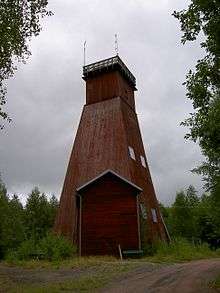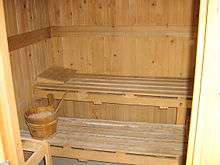Definify.com
Webster 1913 Edition
Lave
Lave
,Lave
,Webster 1828 Edition
Lave
LAVE
,LAVE
, v.i.Definition 2025
Lave
lave
lave
English
Verb
lave (third-person singular simple present laves, present participle laving, simple past and past participle laved)
- (transitive, obsolete) To pour or throw out, as water; lade out; bail; bail out.
- (Can we find and add a quotation of Dryden to this entry?)
- (transitive) To draw, as water; drink in.
- (transitive) To give bountifully; lavish.
- (intransitive) To run down or gutter, as a candle.
- (intransitive, dialectal) To hang or flap down.
- (transitive, intransitive, archaic) To wash.
- Alexander Pope
- In her chaste current oft the goddess laves.
- 1789, William Lisle Bowles, 'Sonnet I' from Fourteen Sonnets, 1789.
- the tranquil tide, / That laves the pebbled shore.
- 2006, Cormac McCarthy, The Road, London: Picador, 2007, p. 38.
- The boy walked out and squatted and laved up the dark water.
- Alexander Pope
Related terms
Etymology 2
From Middle English lave, laif, lafe (“remainder, rest, that which is left”), from Old English lāf (“lave, remainder, rest”), from Proto-Germanic *laibō (“remainder”), from Proto-Indo-European *lip- (“to stick, glue”). Cognate with Old High German leiba (“lave”), Old Norse leif (“lave”), Old English belīfan (“to remain”). More at belive.
Noun
lave (uncountable)
- (archaic or dialectal) The remainder, rest; that which is left, remnant; others.
- 1885, Sir Richard Burton, The Book of the Thousand Nights and a Night, Night 12.
- Then they set upon us and slew some of my slaves and put the lave to flight.
- 1896 (posthumously), Robert Louis Stevenson, Songs of Travel and other verses.[1]
- Give to me the life I love, / Let the lave go by me...
- 1885, Sir Richard Burton, The Book of the Thousand Nights and a Night, Night 12.
- (dialectal) A crowd
- 1807, Ancient historic ballads - Page 72:
- Of prelates proud, a populous lave, And abbots boldly there were known.
- 1807, Ancient historic ballads - Page 72:
Anagrams
References
Danish
Pronunciation
- IPA(key): /laːvə/, [ˈlæːvə ~ ˈlæːʊ]
Adjective
lave
Verb
lave (imperative lav, infinitive at lave, present tense laver, past tense lavede, perfect tense har lavet)
French
Pronunciation
- IPA(key): /lav/
Noun
lave f (plural laves)
- (usually uncountable) lava
Verb
lave
- first-person singular present indicative of laver
- third-person singular present indicative of laver
- first-person singular present subjunctive of laver
- first-person singular present subjunctive of laver
- second-person singular imperative of laver
Anagrams
Portuguese
Pronunciation
- Rhymes: -avi
Verb
lave
- First-person singular (eu) present subjunctive of lavar
- Third-person singular (ele, ela, also used with tu and você?) present subjunctive of lavar
- Third-person singular (você) affirmative imperative of lavar
- Third-person singular (você) negative imperative of lavar
Scots
Etymology
Middle Scots lave, laif, lafe (“remainder, rest, that which is left”), from Old English lāf (“lave, remainder, rest”). Akin to Old High German leiba (“lave”), Old Norse leif (“lave”), Old English belīfan (“to remain”). More at leave.
Noun
lave
- (archaic) rest, remainder.
- Ye are bit a wumman lik the lave, an ye maun thole the brunt o whit life mey bring. — Janet's Love and Service
Spanish
Verb
lave
- Formal second-person singular (usted) imperative form of lavar.
- First-person singular (yo) present subjunctive form of lavar.
- Formal second-person singular (usted) present subjunctive form of lavar.
- Third-person singular (él, ella, also used with usted?) present subjunctive form of lavar.

